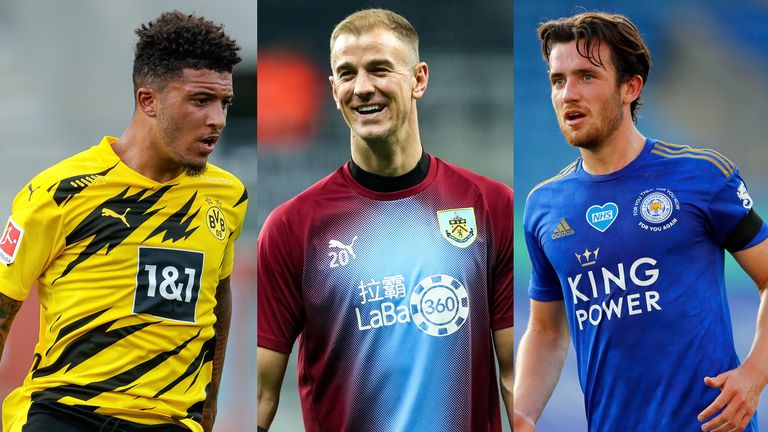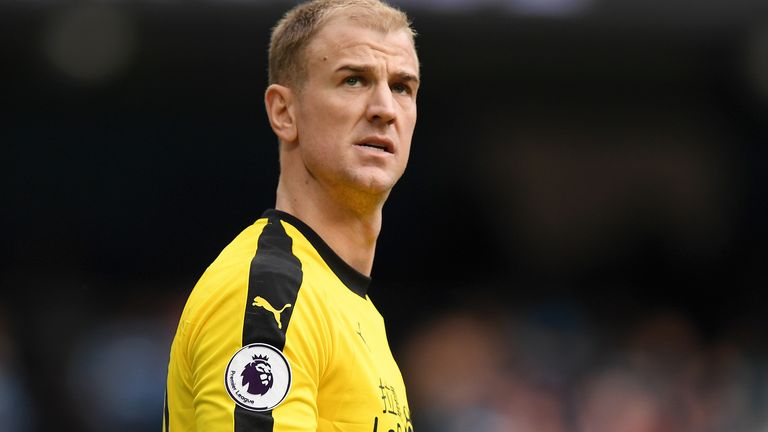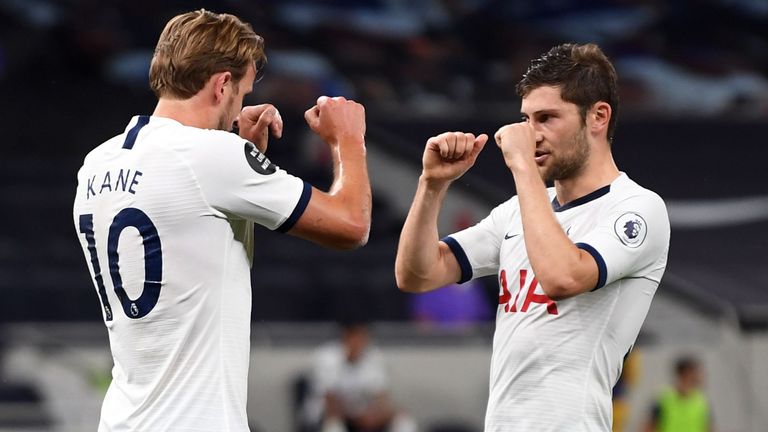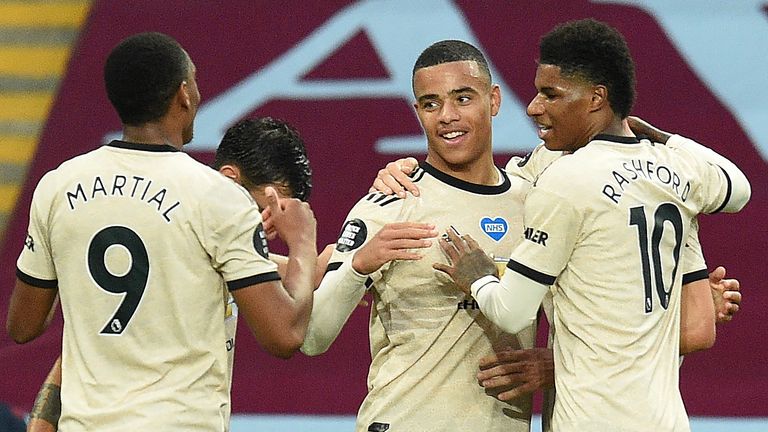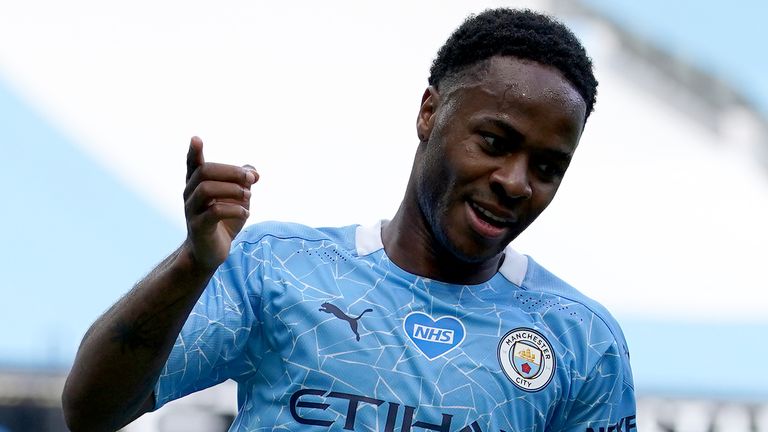Do Premier League clubs need to sign homegrown players?
The homegrown quota is less about avoiding punishment, and more about having the maximum number of experienced players available
Wednesday 19 August 2020 18:29, UK
Joe Hart's move to Tottenham has triggered a conversation about homegrown players in the Premier League and UEFA competitions.
At the moment in the Premier League, clubs need at least eight homegrown players out of a squad of 25, though talks are continuing between the Premier League and the FA over whether that number needs to increase post-Brexit.
The rules are also slightly different for clubs competing in the Champions League and Europa League, and have been an issue for clubs like Tottenham in the past.
But the reality is the homegrown quota is less about avoiding punishment, and more about having the maximum number of experienced players available.
Here, we explain the homegrown rule in both Premier League and UEFA cases, the loopholes, and assess whether clubs need to sign more homegrown players...
What does homegrown mean in a Premier League sense?
Although the rule was brought in by the Premier League a decade ago as part of an effort to help benefit the England team, the name is misleading.
'Homegrown' suggests the player must be English - but in fact it is a player of any nationality that has spent at least three seasons training at a professional English or Welsh club before the age of 21.
However, teams can use as many under-21 players as they like in addition to their main squad, regardless of their nationality.
And how does UEFA define homegrown?
This is where the issue arises.
UEFA defines homegrown players as those who, regardless of their nationality, have been trained by their club or by another club in the same national association for at least three years between the age of 15 and 21.
If clubs in UEFA competitions want to register a maximum of 25 players in their 'List A' squad, they must designate a minimum of eight homegrown players, with four of them being from the club's own youth system.
In 2019/20, 'List B' players must have been born on or after January 1 1995. A club can name an unlimited number of List B players, whereas they may only name 25 List A players.
Why have teams like Spurs had problems?
Spurs, in particular, have struggled with this balance in recent years - Welshman Ben Davies does not count as 'homegrown' under UEFA rules after coming through at Swansea but does under Premier League rules, and former boss Mauricio Pochettino previously questioned why English-born, Portuguese-raised midfielder Eric Dier was not classed as 'homegrown'.
With this, Spurs could only name 21 'List A' players in their Champions League squad in February for the last 16.
And at Manchester City in 2019, with a 17-player foreign quota already full, adding to their homegrown contingent was the only way Pep Guardiola could have more experienced first-team players to choose from.
They ended up buying back left-back Angelino from PSV, a year after selling the academy product, who qualified as a homegrown player in both the Premier League and Champions League.
So what if clubs don't have eight homegrown players?
It is actually easier to look at the rule this way: Premier League teams are not allowed any more than 17 non-homegrown players in their squad.
So say a club only has six homegrown players, they will not be penalised as long as they keep their squad size at 23 players or under. Or if they only have five homegrown players, they can have a squad size of 22 or under.
Similarly in UEFA competition, the rule caps a maximum of 17 foreigners for the club in UEFA competitions. So if you do not have eight homegrown players, you suffer because your squad is made smaller. Simple!
The problem also arises when players who are not homegrown turn 22 - so when Matteo Guendouzi (22 in April 2021) or Christian Pulisic (22 in September 2020) turn 22, Arsenal and Chelsea can no longer include them in the 'free' bracket of those under-21, and are added to the main squad, where they make up one of the 17 foreign players.
How are clubs fixed for homegrown players at the moment?
It is no surprise that Tottenham have looked towards Hart to fill their squad. In their official Premier League squad list in February, they had only four homegrown players, meaning they could only name 20 players.
Those homegrown players were Dele Alli, Harry Kane, Ben Davies and Harry Winks, though this does come with the caveat that teams can use as many under-21 players as they like, regardless of nationality, so Japhet Tanganga and Ryan Sessegnon did not need to be registered in that main squad. However, as previously mentioned, Welsh-born Davies did not count as a homegrown player in the Champions League squad.
Arsenal registered six homegrown players in the February PL squad list - Hector Bellerin, Calum Chambers, Rob Holding, Ainsley Maitland-Niles, Emiliano Martinez and Matt Macey - however the likes of William Saliba, Matteo Guendouzi, Bukayo Saka, Gabriel Martinelli, Reiss Nelson and Eddie Nketiah are all still registered as under-21s.
At Chelsea, Tammy Abraham, Ross Barkley, Andreas Christensen, Fikayo Tomori and Ruben Loftus-Cheek made up their five homegrown players, but Reece James, Billy Gilmour, Mason Mount, Christian Pulisic and Callum Hudson-Odoi do not go towards a first-team quota, while Man City only registered four homegrown players in Scott Carson, Raheem Sterling, John Stones and Kyle Walker, but Eric Garcia, Phil Foden and Ferran Torres still count as under-21s.
Champions Liverpool registered eight homegrown players in Pedro Chirivella, Nathaniel Clyne, Joe Gomez, Jordan Henderson, Adam Lallana, Andy Lonergan, James Milner and Alex Oxlade-Chamberlain, but with Chirivella, Lallana, Lonergan and Clyne now gone, they may look to more homegrown talent. However, they are able to include under-21s in Trent Alexander-Arnold, Neco Williams and Curtis Jones, and all three will be in the homegrown bracket when they reach 22.
The situation is healthy at Manchester United, who registered 13 homegrown players in their February squad: Lee Grant, Andreas Pereira, Dan James, Phil Jones, Jesse Lingard, Harry Maguire, Scott McTominay, Demetri Mitchell, Paul Pogba, Marcus Rashford, Luke Shaw, Axel Tuanzebe and Aaron Wan-Bissaka. To boot, first teamers Mason Greenwood and Brandon Williams counted as under-21s.
Analysis: Could the PL homegrown quota be increased from eight to 12?
Sky Sports' News Bryan Swanson:
"The FA are looking at whether it is best to reduce the number of foreign players in squads, but the Premier League will no doubt feel the minimum number of eight does not need to change.
"There's a feeling that an increased quota to 12 could have a counter-productive impact on those homegrown players; could it damage Premier League clubs' success in Europe? And there is no guarantee homegrown players will actually get more game time.
"Transfer fees of homegrown players would go up, due to the increased demand in them, meaning potentially only certain clubs could afford them. So there's no one-size-fits-all solution to the first team.
"At one stage last season, 41 per cent of players who started in the Premier League were homegrown, with the average across a season usually just over 30 per cent.
"Negotiations are still ongoing, a decision needs to be made, and it will have an impact on future transfer windows."
Transfer Centre LIVE!
All the latest news, analysis and rumours from the window in one place.
The summer transfer window will run for 10 weeks from July 27 and close at 11pm on October 5.
A domestic-only window for trades between the Premier League and EFL then runs from October 5 and closes on Friday October 16 at 5pm. Follow all the news and analysis on Sky Sports News and across Sky Sports' digital platforms, including with our dedicated Transfer Centre blog.

